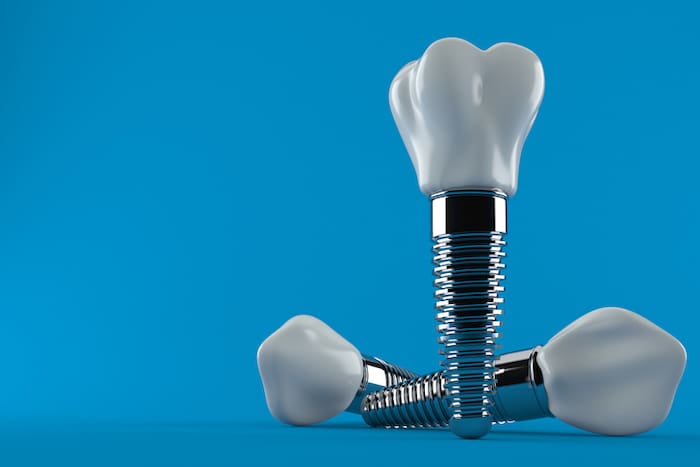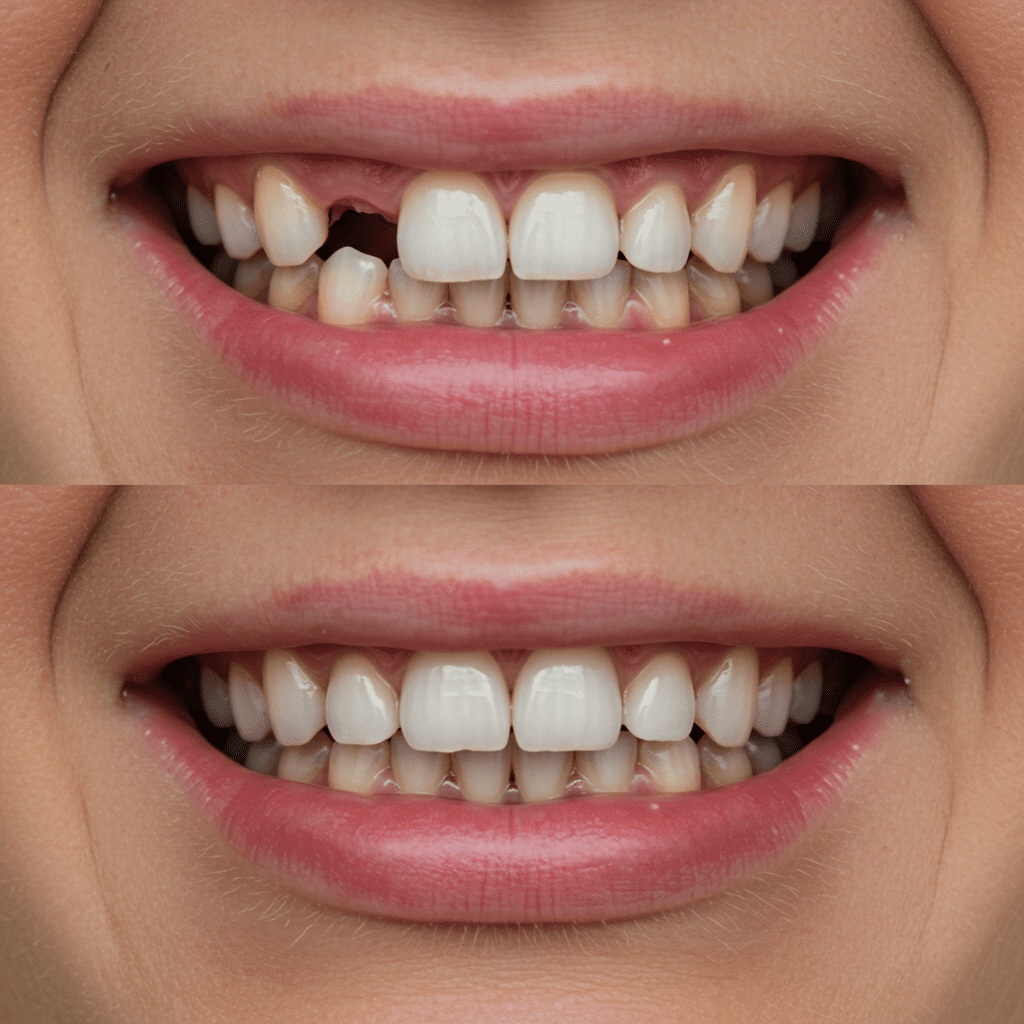Missing teeth can be a huge challenge, especially as you get older. For seniors, it’s common to deal with tooth loss. While there are several ways to replace missing teeth, dental implants stand out as the most modern and long-lasting option.
At Tyler Family Dental, we offer affordable dental implants to help restore your smile and improve your oral health. With our detailed implant treatment plans, we can replace lost teeth, recently removed teeth, and more.
Please, call us at 903-204-4441 and ask how we can help you today, or schedule an appointment online.

Meet Your Dentist, Dr Jennings, DDS
Dr. William Jennings grew up in Pflugerville during his younger years. However, he has traveled and experienced much of Texas, from Santa Anna, through Amarillo. After graduating from West Texas State University, he then went on to complete his dental education at Baylor College of Dentistry.
Dr. Jennings participates in the East Texas Dental Society, the Texas Dental Association, and the American Dental Association.
What Are Dental Implants?
Missing teeth can significantly impact your life. They often lead to bone loss and other dental complications, while also making basic activities like eating and speaking more difficult.
Fortunately, replacing one or more teeth with dental implants can fully restore your oral function and confidence.
Dental implants are artificial tooth roots made from titanium posts that provide a permanent base for fixed or removable replacement teeth. The restorations are designed to closely match the appearance of natural teeth, providing a seamless and attractive smile.
Dental implants are a popular and effective solution for people who have lost one or more teeth due to injury, periodontal disease, or other reasons. Compared to other tooth replacement options, dental implants do not require altering healthy teeth, helping to preserve oral health, making them a superior choice over alternatives like bridges or dentures.
How Do Dental Implants Work?
Dental implants consist of three parts that work together to give you a natural-looking and fully functional smile:
-
Implant Post: This is the titanium screw that’s surgically placed in your jawbone. It acts like the root of a natural tooth, which sets implants apart from other replacement options.
-
Abutment: This piece connects the implant post to the final restoration, keeping everything secure.
-
Final Restoration: The visible part of your new tooth, which can be a crown, bridge, or even dentures. Whether you’re replacing one tooth or a whole set, implants can support various types of restorations. For example, just four implants can hold an entire arch of teeth in place.
What to Expect
Getting dental implants takes a few steps, but the results are worth it. Here’s what the process looks like: A thorough initial consultation with advanced technology, such as CBCT scans, is crucial for assessing bone density and planning precise implant placement.
-
Consultation and Exam: The first step is a consultation where we’ll determine if implants are the right choice for you. This includes a dental exam, reviewing your health history, and taking digital images of your mouth. To qualify, you’ll need healthy bone tissue in your jaw to support the implants. During this stage, we also evaluate your bone density to ensure there is enough support for successful implant placement.
-
Bone Grafting (If Needed): If your jawbone isn’t strong enough, a bone graft might be necessary. This procedure adds bone to the area, creating a solid foundation for the implants. Bone grafts can come from your own body, a donor, or synthetic materials. Once placed, the graft needs time to heal and integrate with your natural bone.
-
Surgical Placement: When your jaw is ready, we’ll place the implant posts into the bone. The dental implant procedure is performed using anesthesia to ensure a painless experience, and sedation options—including IV sedation—are available to keep you comfortable and relaxed throughout the procedure. Over the next 3–6 months, your jawbone will fuse with the posts in a process called osseointegration. This is what makes implants so strong and reliable.
-
Temporary Restoration: We can provide a temporary restoration while your mouth is healing. You won’t have to go without teeth during the process.
-
Final Restoration: Once healing is complete, we’ll take impressions to create your custom restoration. Whether it’s a crown, bridge, or denture, we’ll make sure it matches the size, shape, and color of your natural teeth. At your final appointment, we’ll fit and secure the restoration, ensuring it feels comfortable and looks just right.
The specific procedures involved and the overall cost can vary depending on your individual needs and the complexity of your treatment. The cost of dental implants can vary depending on several factors, including the number of teeth being replaced and the need for additional procedures such as bone grafting.
Why You Might Need a Bone Graft
Bone loss in the jaw is a common issue caused by things like gum disease, trauma, or missing teeth. Without enough healthy bone, implants won’t stay in place. Adding a bone graft builds up your jaw to make it stronger and increases the likelihood of a successful implant.
Your dentist will place bone material where it’s needed during the grafting procedure. Over time, the new bone integrates with your jaw and creates a solid base for the implant. We’ll evaluate your jaw during your consultation to see if this step is necessary for you.
, we’re here to guide you through every step of the dental implant process. Our team will work with you to create a personalized treatment plan that fits your needs and gives you a smile you’ll love. Let’s bring back your confidence with dental implants.
Patient Review
What are the Benefits of Dental Implants
One of the biggest perks of dental implants is that they replace the tooth root, not just the visible part of your tooth. When you lose a tooth, the jawbone in that area starts to shrink. This changes the shape of your face and makes it look older.
A dental implant keeps your jawbone healthy and even encourages new bone growth because it acts like a natural root. Other tooth replacements only fill in the gap but don’t stop the bone loss. Over time, your jaw keeps changing. This means you’ll need to adjust or replace those restorations regularly to keep them working properly.
However, implants are anchored in your jawbone, so they’re stable, won’t slip or shift, and don’t need frequent adjustments.
Implants also let you eat all your favorite foods without worry. You can confidently enjoy foods like apples, steak, and corn on the cob with their strong, natural-like bite force. Plus, caring for them is easy. Just brush, floss, and keep up with your regular dental checkups.
Another big advantage is that dental implants don’t rely on your surrounding teeth for support. This means your healthy teeth stay intact, and you won’t need to reduce or damage them to make the restoration fit. Implants are a stand-alone solution.
We will give you a complete smile without putting extra stress on your remaining teeth.

Before and after dental implant treatment to replace a missing tooth.
What to Consider Before Getting Implants
Dental implants have a lot of great benefits. It’s also important to know about the challenges that come with them:
-
Cost: Implants are a more expensive option compared to other tooth replacements. This is because they involve high-quality materials, many steps and appointments to complete the process. While they’re a long-term investment, the upfront cost can feel significant.
-
Time Commitment: Getting dental implants isn’t a quick fix. The process can take several months or even up to a year. This includes healing time between steps, like letting the implant fuse with your jawbone. You’ll also need to visit the office for multiple checkups along the way.
-
Surgery Risks: Implants require oral surgery. Some risks include infection, nerve damage, or complications with anesthesia. After surgery, it’s important to follow all care instructions to avoid problems. Surgery may not be an option for patients with certain health conditions, or it could increase the chances of implant failure.
-
Long-Term Care: Implants can last a lifetime, but they require you to stay on top of your overall health and oral hygiene. If you don’t maintain good habits, brush, floss, and attend regular dental visits, the implants may not last as long as they should.
Maintenance and Care
Proper care is key to the long-term success of your dental implants. After surgery, following a soft food diet helps protect the implant and supports healing. Maintain good oral hygiene by brushing twice daily, flossing, and attending regular dental check-ups to keep your implants and natural teeth healthy.
Avoid tobacco products as they can hinder healing and increase implant failure. A healthy lifestyle and managing health conditions also support implant longevity.
In Tyler, TX, our experienced team offers comprehensive dental implant services, including bone grafting and wisdom teeth extractions, with personalized care and advanced training. Financing options are available to make treatment accessible.
Does Medicare Cover Dental Implants in Tyler, TX?
Original Medicare (Parts A & B) generally does not cover:
-
Routine dental exams
-
Tooth extractions
-
Dentures or dental implants
However, you have options:
-
Medicare Advantage Plans (Part C) may offer partial coverage for dental implants. This depends on the specific plan provider in Texas.
-
Supplemental dental insurance or discount dental plans may reduce costs.
What You Can Do:
-
Review your Medicare Advantage plan details carefully.
-
Check for in-network dental implant specialists.
-
Look for “dental implant coverage” or “restorative dental services” in plan documents.
Schedule a Dental Implant Consultation Today
Dental implants offer a strong and functional solution to missing teeth, but they do take time, effort, and an upfront investment. At our Tyler dental office, we’ll guide you through every step of the process to ensure you’re confident in your choice and happy with your results. Identify full-service providers who handle all aspects of the implant process to ensure continuity of care.
If you’re missing teeth, dental implants may be the best tooth replacement solution for you. Please schedule an appointment online or call our office today at 903-204-7987.
